After majoring in political science and human rights, and then completing a fast-track master’s in public policy, UConn alum Sudiksha Mallick ’23 (CLAS), ’24 MPP – who has long been interested in education policy – knew that she wanted to work in state government.
“But I wasn’t sure exactly where,” she says, “and I was really looking for some sort of mentorship.”
Eniola Fasola ’20 (CLAS, CAHNR), MA ’24 Ph.D. earned her master’s in economics and her doctorate in agricultural and resource economics from UConn and knew that she ultimately wanted to use her analytical acumen to do work that would have impact.
“There’s something incredibly fulfilling about seeing your skills contribute to projects that can improve lives,” she says.
With a background in city planning and an interest in public finance, Kevin Fitzgerald ’18 (CLAS), ’21 MPA knew that he wanted to contribute to policy changes in a way that allowed him to leverage both of those interests.
“I was drawn to the opportunity to work on state projects,” he says. “I’d previously been in a few town halls, and had worked adjacent to the Department of Economic and Community Development, but really was drawn to the opportunity to contribute to new policy changes through DECD.”
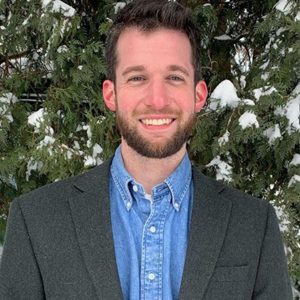
Katarina Rodriguez ’16 (CLAS), ’21 MPA, who majored in human development and family sciences at UConn, is interested in data storytelling and the ways that it can be used to support public policies that affect individuals and communities.
“Data storytelling is essentially using data, whether it’s quantitative or qualitative, to broadcast a narrative to an audience that is supported by hard numbers or the accounts of actual constituents,” she explains.
Tazmaya Reid ’17 (CLAS), ’25 MBA has spent the years since she earned her undergraduate degree in political science and human rights working in the nonprofit sector on addressing health and educational disparities across the state.
“In my work at a nonprofit, I supported individuals facing the same challenges, no matter where they lived,” she says, and she was interested in finding ways to work on those issues on a broader scale.
With a background in communication, Carrie Titolo ’24 MPA was not new to the workforce – she’d already spent 15 years working in the nonprofit sector. But where she lacked experience after completing her Master of Public Administration at UConn was in government.
“As someone with no prior experience in state government, it sounded like the perfect opportunity to learn the landscape without the immediate pressure of committing to a permanent role,” she says.
That perfect opportunity for Titolo – and for each of these very different UConn alumni – is the Governor’s Fellowship Program, a unique public-private partnership that’s helping to cultivate cohorts of public service-minded professionals into the next generation of policymaking leaders in Connecticut.
Bright Minds
Launched in 2020, the Governor’s Fellowship Program – a joint effort supported by the Office of the Governor; the Connecticut Department of Administrative Services, or DAS; the Yale University Tobin Center for Economic Policy; and Social Impact Partners for Connecticut – recruits early-to-mid-career candidates twice per year for fellowship placements within state government agencies, with the goal of providing emerging leaders with an opportunity to be involved and make a positive impact on the state by offering innovative ideas and fresh perspectives.
“Fellows are selected and placed at state agencies based on skills and experience,” says Melissa Conway ’16 (CLAS), the chief administrative officer at DAS who coordinates the program. “The process is competitive, and as awareness of the program increases, so does the number of applicants. In recent recruitment cycles, we have received anywhere from 40 to 85 applications.”
After a scoring, evaluation, and interview process that considers professional experience, analytical skills, subject-matter expertise, and communication skills, among other factors, qualified fellows are matched with agency requests that best suit both the candidate’s skills and the agency’s priorities.
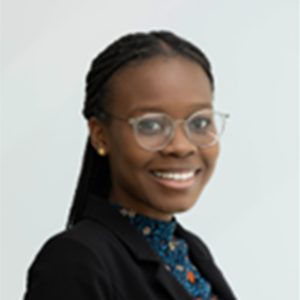
“The state chooses the projects and sets the policy priorities,” says David Wilkinson, the executive director of the Tobin Center at Yale who helped to establish the fellowship program, “and we help bring bright minds from universities in the state to help deliver on agency objectives.”
Fellowships are for one year, and are available to all applicants, not just those from UConn.
But UConn has been well-represented in the program’s cohorts, and recent fellows from UConn have been placed in agencies spanning the scope of state government, including the Departments of Transportation, Economic and Community Development, Aging and Disability Services, and Social Services.
And the work that they’re doing has both depth and reach. Previous governor’s fellows have written major legislation to remove lead from homes in Connecticut’s most vulnerable communities.
They developed plans for allocating billions in federal pandemic relief dollars.
They founded and chaired the Governor’s Afghan Evacuee Taskforce, an interagency-public-private-nonprofit working group focused on coordinated approaches to providing safe haven and resources for resettled evacuees in Connecticut.
And they created and managed the Connecticut Communities Challenge, a competitive grant program to spur investment in high-quality, transit-oriented development.
In addition to their individual projects, fellows in the program are given in-person and virtual group check-ins throughout the year as well as trainings, a speaker series, networking opportunities, and Fellows Days at the State Capitol in Hartford, where they have the opportunity to visit the Governor’s Office, tour the capitol, and meet the governor’s chief of staff.
“Fellows have a unique opportunity to work directly with and learn from leaders in government,” says Conway. “While the work can be challenging at times, it is always meaningful, and the connections that fellows make through the program are lifelong.”
Invited to the Table
For Rodriguez, who is serving her fellowship in the Department of Aging and Disability Services, a lot of her time right now is spent using data from various programs and bureaus within the agency to produce results-based accountability “report cards.”
“I’m answering three very basic questions: How much did we do, how well did we do it, and is anyone better off?” she says. “For example, how much did we do? You can answer that in terms of how much money was spent on a program, how many people were served, how many classes people attended of a specific program – how much work we did, how many service hours or how many caseload hours we provided.”
But in the midst of the 2025 legislative session, Rodriguez has also been called upon to supply data that can help inform proposed bills before the General Assembly that can affect the agency’s constituents and staff.
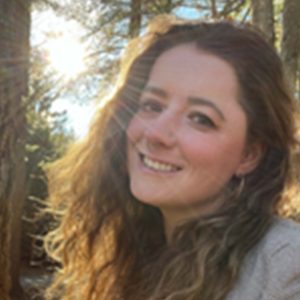
“I love being invited to the table when there’s something pressing happening at the state level,” says Rodriguez, who was among the fellows able to attend the governor’s State of the State address this year.
“We were up on the balcony, and we got to look down and see all the representatives,” she says. “And we were in a room where a lot of changes will be happening during a very crucial time in American politics.”
The legislative session has also played an important part in Mallick’s fellowship experience thus far. Working out of the Office of the Governor, and reporting to the governor’s senior advisor, she’s gotten a crash course in legislative processes while also working on strategic initiatives surrounding youth family policy.
“Being able to really implement the policies that we’re developing, and to actually be a part of their development, is really, really cool,” Mallick says. “But because I’m in the Capitol building every single day, I’ve been able to join the legislative team a little bit as well – really being able to understand the process better and being a part of bill tracking and coverage and all of that.”
Mallick continues, “I’ve never worked in a place like this. There’s always something happening. Just being able to be in that space and seeing everything that’s going on is a huge learning opportunity every day.”
For their fellowships, Fasola and Fitzgerald – both placed in the Department of Economic and Community Development – are working with the Institute of Data and Economic Analysis, or IDEA, on projects involving concentrated poverty in Connecticut, strengthening the bioscience industry, developing a recession response playbook, mitigating the economic impact of federal tariffs, streamlining efforts to clean up contaminated industrial properties, studying the state’s remote working needs, and exploring opportunities to address Connecticut’s need for housing.
“IDEA is a cross-agency effort focused on developing data-driven policy solutions, exploring opportunities to enhance the agency’s initiatives,” explains Fitzgerald. “It’s a little bit of comparing what other states are rolling out and seeing if we can implement that in Connecticut, testing how effective our initiatives are, and gathering data on the results from current initiatives and looking at opportunities to improve them.”
They’ve taken part in the agency’s work around this year’s legislative session as well.
“One of my goals before joining the program was to better understand how to analyze and interpret legislative proposals,” Fasola says. “This fellowship has helped me make substantial progress in that area. I have had the chance to review and assess the economic implications of legislative bills, which has deepened my understanding of the policymaking process.”
Within the Department of Social Services, Reid has served as a project manager and worked in the Opportunity Center initiative, which is aimed at streamlining access to services across multiple agencies.
“The experience was exciting and kept me on my toes,” Reid says. “I loved the opportunity to collaborate on a multi-agency initiative, which was both engaging and meaningful. I’ve always been passionate about integrating business practices with human services. This experience reaffirmed that path for me and opened my eyes to the wide range of roles and opportunities available in government.”
At the Department of Transportation, or DOT, Titolo reported to the agency’s deputy chief of staff, and she worked on a variety of workforce development programs, partnerships, and initiatives – especially those aimed addressing the agency’s need for engineers and highway and construction professionals.
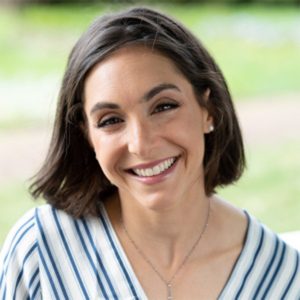
“Eric [Scoville, the deputy chief of staff] always made room for me to have a seat at the table and allowed me to take ownership of projects and run with my ideas,” Titolo says. “I loved working with people all across the agency in different roles, and building relationships with our education, nonprofit, and sister agency partners. I was able to apply my skills and talents in a new context, which was both interesting and challenging.”
Since completing her fellowship earlier this year, Titolo has been hired full-time by the DOT. She’s currently serving as a special advisor to the commissioner for strategic partnerships and projects.
And it’s that kind of success that’s part of the fellowship’s overall purpose, according to Wilkinson from the Tobin Center.
“To see some of UConn’s brightest graduates working in state government, serving the people of Connecticut, is a major win for the Governor’s Fellowship,” he says, “and just what we hoped to achieve when we established the program.”
Well-Positioned
The inclusion of so many UConn alumni in the fellowship program, particularly alumni from the UConn School of Public Policy, wasn’t something planned, according to Ryan Baldassario ’16 MA ’22 Cert., the school’s director of engagement.
“It naturally sort of occurred,” Baldassario says. “But I think that’s a testament to our alumni who are active in the public sector. They pursue career opportunities, whether we put it in front of them or not.”
Public Policy alum Fitzgerald learned about the fellowship program shortly after it launched.
Fasola, who studied in the College of Liberal Arts and Sciences and the College of Agriculture, Health and Natural Resources, found it through the Tobin Center on LinkedIn.
School of Business student Reid learned about the program from a community partner and close friend.
“It felt like a sign, an opportunity to contribute from the top down,” she says.
But for Titolo, Mallick, and Rodriguez, the School of Public Policy actually did put the opportunity in front of them – they all decided to apply after the school shared information about the fellowship through its alumni listerv.
“We do have different tools to get career opportunities out to our alumni and to some of our current students,” Baldassario says. “We have an active listserv where we send out opportunities on a weekly basis, if not more frequently. We do encourage students and alumni to come to events – we have networking workshops other alumni events and we have an alumni council where these type of opportunities are shared out as well. We also have a private LinkedIn group that is dedicated to our alumni.”
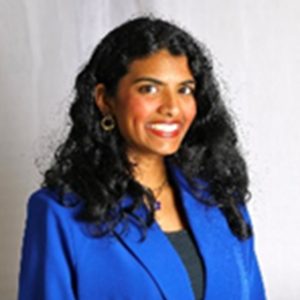
UConn’s MPA program, Baldassario explains, is also the only Network of Schools of Public Policy, Affairs, and Administration, or NASPAA, accredited Master of Public Administration program in the state, something that helps to position UConn’s students well once they graduate. UConn is also pursuing formal accreditation for its MPP program this year.
“There’s other really quality programs at other institutions, but we do take that extra step to go to accreditation to make sure that we’re upholding those standards,” he says.
“Our students get really good training in their classes,” says Angela Eikenberry, a professor and director at the School of Public Policy, “ and the classes they take, and what we offer – and why we offer it – is driven by a process that we have where we continually try to stay on top of what our students need to be successful.”
That includes identifying needs within state government in Connecticut, and adjusting programs and training for students to help the state meet those needs, notes Eikenberry.
Opportunities like the Governor’s Fellowship Program, notes Baldassario, benefit both the state and UConn graduates.
“These opportunities are essentially allowing students to get more specific full-time experience in the public sector, and then it enables them to have a better idea of where they want to go after that,” Baldassario says. “Do they want to stay in that type of service? Do they want to stay in that type of public-sector work, or do they want to go somewhere different? Do they want to leave state service and go into the nonprofit space? And what skills transfer between those opportunities?”
Passionate and Driven
One of the Governor’s Fellowship Program’s greatest successes, according to Conway from DAS, has been the cultivation of leaders who are passionate about public service.
“After completing their fellowship, many fellows have supported the public sector, either in positions in state government, nonprofits, or organizations that work closely with government,” she says. “In addition, the program has fostered strong networks among the fellows and state professionals by creating a collaborative environment that supports ongoing learning and professional development.”
The six UConn fellows are now a part of that network, and when asked if they’d recommend the Governor’s Fellowship Program to another UConn alum, all six were emphatic with their endorsement.
“I would definitely recommend this program, and would advise anyone interested to pursue it,” says Titolo. “It is not always easy to enter state service without prior experience, and this program provides a truly valuable on ramp – pardon the transportation pun – for qualified candidates looking to make a positive impact on local communities and learn more about how state government works.”
For some, the opportunity to take charge of a project with the support of experienced and encouraging mentorship has proven to be one of the most invaluable parts of their experience.
“You really get to take the initiative and say, ‘This is a project that I’m going to take charge of and lead in my time here,’ and then have the mentorship of people who have been in that field for a long time, and who have had a lot of success in that field,” says Mallick.
“I’ve really appreciated the mentorship I’ve received from colleagues within DECD, like my chief of staff,” says Fitzgerald. “I really appreciate his guidance and introduction to state government, and his willingness to assign projects that are really tailored toward my interests.”

But the fellows have also seen growth and changes in themselves through their fellowship experience.
“This experience has definitely increased my confidence, and I’m able to now see the impact of the work that I’m doing directly on Connecticut citizens,” says Rodriguez.
And they’ve found camaraderie amongst themselves as a cohort of like-minded professionals looking to play a role in the policies that impact Connecticut.
“One of the most valuable components of the program for me has been the Fellows Day,” says Fasola. “This event has been a great platform to connect with other fellows, gain insights into their projects, learn from fellowship alumni and engage with program coordinators. The event offers a sense of community, provides mentorship and has shown me how the coordinators are invested in the work we do across various executive agencies and in our professional development.”
“We’ve formed a really close cohort, and I think that being able to learn alongside them has been really valuable,” says Fitzgerald.
“We’re surrounded by other people in the cohort who also are very passionate and driven – who really have this drive for public service, you can tell that they’re all really good people who want to give back,” says Mallick. “Having these people to bounce ideas off of, and this built-in support system – which I don’t think always comes with a job or employment – I think is one of the benefits.”
“One of the most valuable parts was being part of a cohort of fellows, learning from one another, exploring different facets of government, and building lasting connections,” says Reid, who also noted that the format of the fellowship program, and the dedication of the support team, made all the difference.
“Their commitment to our growth and success truly stood out and made the experience even more impactful,” Reid says. “I am forever grateful and honored to have the opportunity to be a fellow.”
The next Governor’s Fellowship Program cohort will launch in late summer 2025; recruitment will reopen in fall 2025 for fellowships starting in January 2026.
More information about the Governor’s Fellowship Program – including details on qualifications and application materials – is available online from the Connecticut Department of Administrative Services at portal.ct.gov/das.



